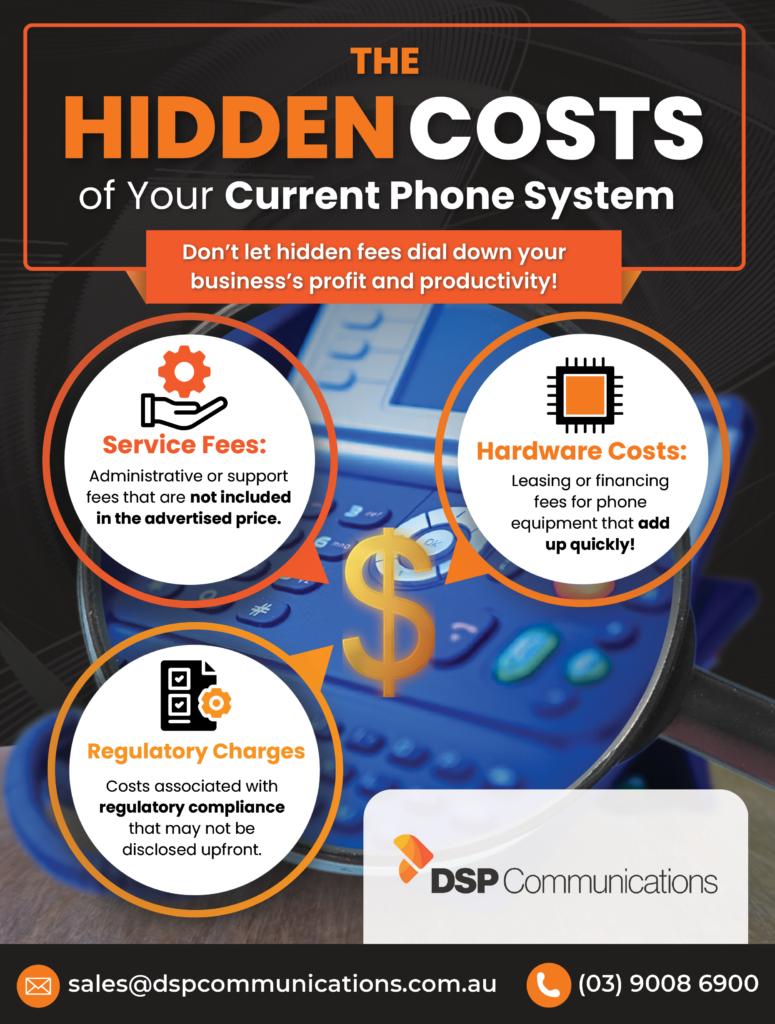Don’t let hidden fees dial down your business’s profit and productivity!
In the ever-evolving world of business communication, many companies are making the switch to Voice over Internet Protocol (VoIP) systems. While traditional phone systems may seem cost-effective upfront, the hidden costs associated with them can quickly add up. Let’s explore some of these hidden costs and why VoIP could be the smarter choice for your business.
1. Hardware Costs
A. Physical Equipment
Traditional phone systems require a significant investment in hardware, including:
- Private Branch Exchange (PBX): A physical switchboard that routes calls, which can cost thousands of dollars to purchase and maintain.
- Desk Phones: Each employee typically requires their own phone, and high-quality desk phones can be quite pricey.
In contrast, VoIP systems primarily use existing internet connections and can often utilise software-based phones or mobile apps, drastically reducing hardware costs.
B. Maintenance and Upgrades
With traditional systems, regular maintenance and upgrades are essential. This could mean hiring specialised technicians or paying for costly parts. VoIP providers typically handle maintenance and updates remotely, often at no additional charge, which keeps your system current without added expenses.
2. Service Fees
A. Monthly Service Charges
Traditional phone lines usually come with hefty monthly fees. These can include:
- Line Charges: Each line can incur a separate fee, which can multiply quickly in larger businesses.
- Long-Distance Fees: Calls outside your local area often come with additional charges, which can significantly impact your budget.
VoIP systems, on the other hand, often offer unlimited calling plans that cover both local and long-distance calls for a flat rate, providing significant savings.
B. Installation Costs
Setting up a traditional phone system often requires professional installation, which can be expensive. In contrast, VoIP systems can typically be set up by staff, reducing or eliminating installation fees.
3. Additional Charges
A. Feature Costs
Many advanced features like voicemail, call forwarding, and conference calling often come with extra costs on traditional systems. VoIP services usually bundle these features into their packages, allowing for greater functionality without increasing your expenses.
B. Scalability Costs
As your business grows, expanding a traditional phone system can be a logistical and financial nightmare. Adding new lines often means purchasing additional hardware and paying for installation. VoIP systems, however, are designed to scale easily; you can simply add new users to your existing plan without the need for extensive hardware changes.
While traditional phone systems might appear cheaper at first glance, the hidden costs associated with hardware, service fees, additional charges, and potential downtime can make them far more expensive in the long run. VoIP systems offer a more cost-effective, scalable, and feature-rich solution that can adapt as your business grows. If you’re still relying on traditional phones, it may be time to reassess your communication strategy and consider the substantial benefits of switching to VoIP.
If you are a Business Owner/Manager in the Cranbourne/Mornington Peninsula area, contact us to see how we can help you implement VoIP in your business.

